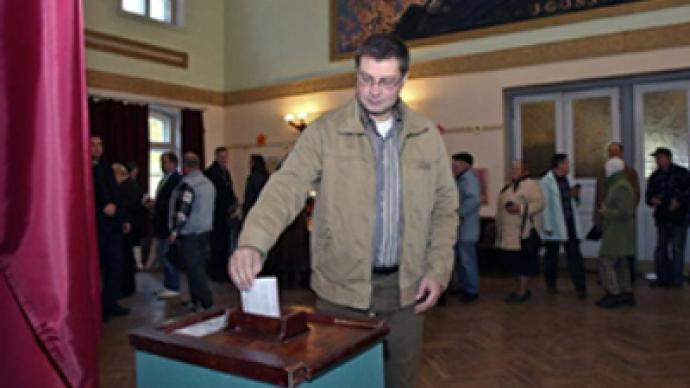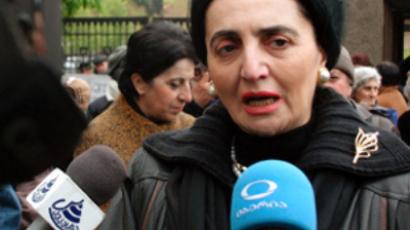New Latvian coalition may accept ultranationalist party

Although the political force supporting Latvia’s Russian-speaking population came second in Saturday’s election, it still lacks enough votes to enter government.
The centrist Unity bloc is likely to form the new government in Latvia together with Greens and Farmers and the nationalist Fatherland and Freedom party. The ultranationalist All for Latvia may also enter government, observers warn.
Prime Minister Valdis Dombrovskis’s Unity won the parliamentary elections and is expected to occupy 33 of the 100 parliamentary seats.
The left-leaning Harmony Center that represents the rights of Latvia’s Russian-speaking minority came in second, winning 26% of the vote and 29 seats.
Another 22 seats went to the Union of Greens and Farmers that forms the ruling coalition, with Dombrovskis in the current parliament.
The opposition For a Good Latvia party and the nationalist For Fatherland and Freedom movement will have eight seats each.
A total of 13 parties took part in the elections as the turnout was 63%. Another political party, supporting the Russian-speaking population, For Human Rights in United Latvia, did not make it to parliament, winning only 1.4% of the vote.
The country has yet to get rid of the tensions between the Latvian- and the Russian-speaking population.
“People’s representatives get an opportunity to restore lost trust of Latvia's people in the legislative body of power – parliament,” Latvia’s President Valdis Zatlers said, Itar-Tass reported.
The Harmony Center, led by Nil Ushakov (who is the Russian-speaking mayor of the country’s capital Riga), has practically lost all chances of entering government, observers say.
However, prior to the elections, analysts were not certain of Unity’s victory, assuming the voters had wanted to see new forces in government during the economic crisis, Kommersant daily wrote.
The country’s economy plunged 25% in two years, according to analysts’ estimates. Dombrovskis’ government had resorted to budget cuts and tax hikes to meet the terms of the International Monetary Fund’s bailout. Nevertheless, more than a third of the voters still supported the ruling coalition.
Dombrovskis promised to cooperate with all parties, including the Harmony Center. “We have no goal of isolating them,” he stressed.
“The main feature of this campaign, however, was the success of the neo-fascist All for Latvia party entering the parliament,” Rossiyskaya Gazeta daily said. “It is known for its slogans ‘Latvia for Latvians’ and ‘Evict Russians to Russia’.” Thus, Moscow and the Russian-speaking minority in Latvia may encounter “anti-Russian and Russophobic parliamentary initiatives” in the near future, the paper noted.
“The inclusion of neo-fascists in the Latvian government will jeopardize the visit of the country’s president to Russia,” Regnum news agency said. After the elections, Unity’s leadership has negotiated not only with the Union of Greens and Farmers, but also with “the nationalist and neo-fascist union of Fatherland and Freedom and All for Latvia” that might enter the government, the agency stressed.
Fatherland and Freedom is already a part of the current coalition. All for Latvia, prior to the October 2 elections, was not represented in the parliament.
The Kremlin will not receive President Zatlers if he supports the coalition “with Latvian neo-fascists,” Regnum said, citing a source in the Russian Foreign Ministry. During his visit to Latvia in July, the head of the Russian presidential administration Sergey Naryshkin handed over an invitation to Zatlers, the agency said. Now the relations between the two countries will largely depend on the policies of Latvia’s new ruling coalition.
Sergey Borisov, RT













